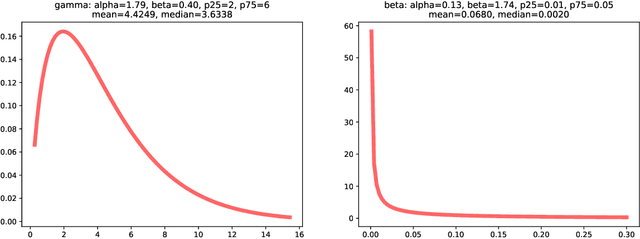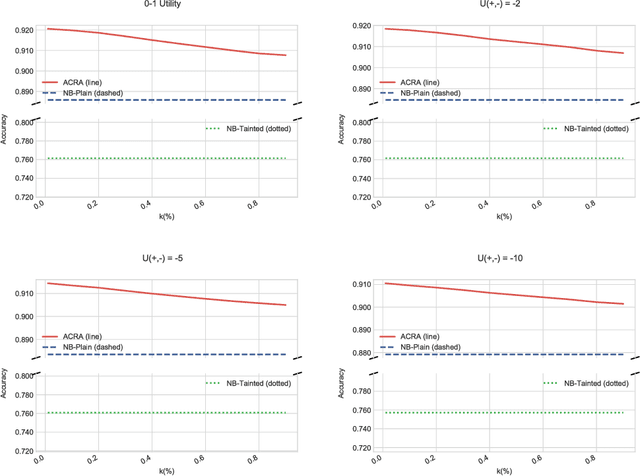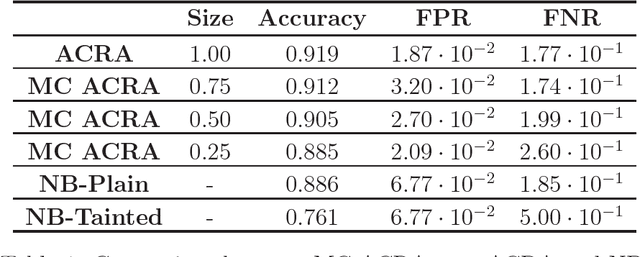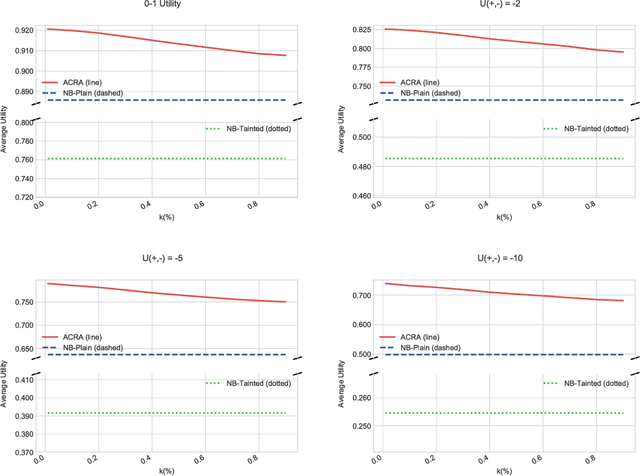Alberto Redondo
Protecting Classifiers From Attacks. A Bayesian Approach
Apr 18, 2020



Abstract:Classification problems in security settings are usually modeled as confrontations in which an adversary tries to fool a classifier manipulating the covariates of instances to obtain a benefit. Most approaches to such problems have focused on game-theoretic ideas with strong underlying common knowledge assumptions, which are not realistic in the security realm. We provide an alternative Bayesian framework that accounts for the lack of precise knowledge about the attacker's behavior using adversarial risk analysis. A key ingredient required by our framework is the ability to sample from the distribution of originating instances given the possibly attacked observed one. We propose a sampling procedure based on approximate Bayesian computation, in which we simulate the attacker's problem taking into account our uncertainty about his elements. For large scale problems, we propose an alternative, scalable approach that could be used when dealing with differentiable classifiers. Within it, we move the computational load to the training phase, simulating attacks from an adversary, adapting the framework to obtain a classifier robustified against attacks.
Assessing Supply Chain Cyber Risks
Nov 26, 2019


Abstract:Risk assessment is a major challenge for supply chain managers, as it potentially affects business factors such as service costs, supplier competition and customer expectations. The increasing interconnectivity between organisations has put into focus methods for supply chain cyber risk management. We introduce a general approach to support such activity taking into account various techniques of attacking an organisation and its suppliers, as well as the impacts of such attacks. Since data is lacking in many respects, we use structured expert judgment methods to facilitate its implementation. We couple a family of forecasting models to enrich risk monitoring. The approach may be used to set up risk alarms, negotiate service level agreements, rank suppliers and identify insurance needs, among other management possibilities.
Protecting from Malware Obfuscation Attacks through Adversarial Risk Analysis
Nov 09, 2019



Abstract:Malware constitutes a major global risk affecting millions of users each year. Standard algorithms in detection systems perform insufficiently when dealing with malware passed through obfuscation tools. We illustrate this studying in detail an open source metamorphic software, making use of a hybrid framework to obtain the relevant features from binaries. We then provide an improved alternative solution based on adversarial risk analysis which we illustrate describe with an example.
Adversarial classification: An adversarial risk analysis approach
Jun 26, 2018



Abstract:Classification problems in security settings are usually contemplated as confrontations in which one or more adversaries try to fool a classifier to obtain a benefit. Most approaches to such adversarial classification problems have focused on game theoretical ideas with strong underlying common knowledge assumptions, which are actually not realistic in security domains. We provide an alternative framework to such problem based on adversarial risk analysis, which we illustrate with several examples. Computational and implementation issues are discussed.
 Add to Chrome
Add to Chrome Add to Firefox
Add to Firefox Add to Edge
Add to Edge